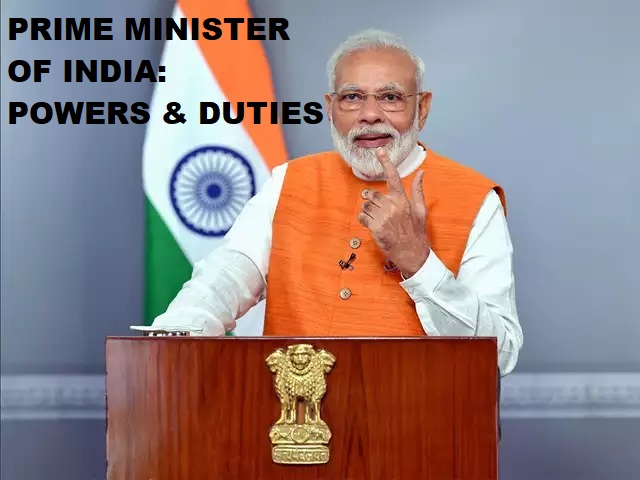The Powers and Responsibilities of The Prime Minister

The powers and responsibilities of the Prime Minister in a parliamentary system of government can vary depending on the specific country's constitution, laws, and political practices. However, here are some common powers and responsibilities associated with the position of Prime Minister:
Head of Government: The Prime Minister is the head of the government and is responsible for leading the executive branch. They oversee the implementation of government policies and decisions.
Chief Executive: The Prime Minister exercises executive authority and is responsible for the administration of government ministries and departments. They appoint and supervise cabinet ministers and other senior government officials.
Policy Formulation: The Prime Minister plays a central role in formulating government policies and priorities. They work with their cabinet and party members to develop legislative agendas, budgets, and other important policy initiatives.
Leader of the Cabinet: The Prime Minister presides over cabinet meetings and coordinates the work of government ministers. They chair cabinet discussions, set the agenda, and ensure that decisions are implemented.
Legislative Role: Although the Prime Minister is not a member of the legislative body (such as parliament or congress), they play a significant role in the legislative process. They work to secure support for government bills and initiatives, negotiate with other political parties, and ensure that the government's legislative agenda is advanced.
Representation and Diplomacy: The Prime Minister represents the government both domestically and internationally. They serve as the primary spokesperson for the government, addressing the public and the media on important matters of policy and governance. They also represent the country in diplomatic negotiations and international forums.
Crisis Management: During times of crisis or emergency, the Prime Minister takes on a crucial role in providing leadership, coordinating government responses, and reassuring the public.
Appointment and Dismissal: The Prime Minister has the authority to recommend the appointment and dismissal of government ministers, subject to the approval of the head of state (such as the monarch, president, or governor-general).
Budgetary Authority: The Prime Minister typically plays a key role in the budgetary process, including the preparation and presentation of the government's annual budget to the parliament or legislative body.
Advisory Role: The Prime Minister may also provide advice and counsel to the head of state on matters of governance and state affairs.
Overall, the Prime Minister wields significant power and influence in a parliamentary system of government, playing a central role in the formulation and implementation of government policies and decisions. However, their authority is subject to constitutional constraints, parliamentary scrutiny, and political considerations.
Thank you,